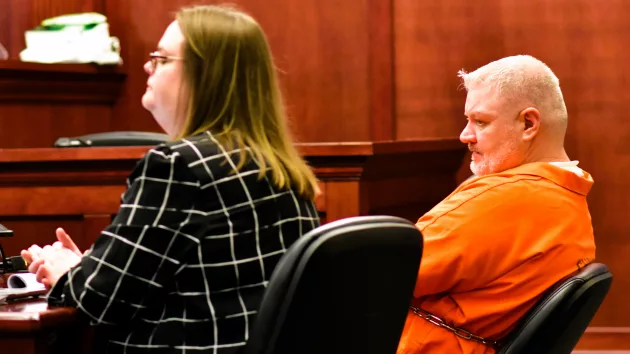
Charged with the 2020 murder of Will Jackson Road resident Thelma Ileen Barnett, Jonathan McCoy’s defense attorneys filed a 404 (b) on his behalf last week in Trigg County Circuit Court — seeking the inadmissibility of two prior cases that may, or may not, show modus operandi, otherwise known as a “signature crime.”
In 1994, McCoy was a 16-year-old Marshall Countian when he was charged with two counts of kidnapping, one count of assault fourth degree and two counts theft by unlawful taking. Court documents show that, at the time, 3-year-old witness Brittany McCoy heard a thumping noise in her mother’s bedroom, with her mother — Jonathan’s aunt — yelling and crying.
The toddler saw her mother’s hands tied behind her back with an extension cord, and Jonathan forced the trio drive to Illinois. During a stop at an undisclosed McDonald’s, the mother called out to police — leading to an arrest.
In 1995, McCoy pleaded guilty on all counts, and was sentenced to 25 years as a youthful offender.
Fifteen years later, September 10, 2020, Lyon County law enforcement began an investigation regarding an abandoned and burned truck — and ultimately indicted McCoy alongside co-defendant Michael Craig Williams, who was sentenced at the beginning of April, for complicity to receiving stolen property and complicity to arson second degree.
Just six days later, Trigg County first responders were summoned to 6070 Will Jackson Road for a house fire, and discovered Barnett in the utility room. An autopsy revealed her hands had been bound behind her back with an electrical cord — perhaps cut off a lamp in her home. Barnett had also been strangled, and died before the fire began.
McCoy was arrested by the Trigg County Sheriff’s Department on September 22, 2020, regarding an unrelated warrant. While in custody, McCoy’s phone was seized and later ciphered, and Kentucky State Police interrogated McCoy for the first time as a suspect in Barnett’s murder.
Commonwealth’s Attorney Carrie Ovey-Wiggins and her team have long argued that McCoy’s prior bad acts should be heard by a trial jury, because of their plausible relation to Barnett’s murder.
However, defenders Richard Lawniczak, Wesley Boyarski and Christy Hiance urge otherwise.
In a 20-page retort, citing considerable case law, the team asserts allowing details of these two collateral cases “would violate Mr. McCoy’s due process rights under the Fifth and Fourteenth Amendments of the U.S. Constitution,” and that the Commonwealth has filed notice of intent to seek the death penalty.
Furthermore, the filing also notes a few other arguments:
— That the use of an electrical cord as an alternative to rope is not unique to either kidnapping or home invasion cases.
— That the two previous cases are not similar, and are much less strikingly similar.
— That Ms. Barnett’s killer would not have been rushing through the house searching for the right shade of electrical cable, tossing televisions and phone chargers aside to make sure the shade matched their vision.
— That the use of an electrical cord is not unique to all of the charges.
— That the criminal timeline is inexorably linked.
— And that the overall evidence profile is more prejudicial than probative.
Though the Commonwealth hasn’t officially responded, the office has also noted that McCoy’s 2012 parole revocation, 2012 Livingston County case, 2012 Christian County case and 2013 Trigg County case allegedly kept him from his trademark efforts, because he was “too busy being incarcerated” for other crimes.
McCoy returns to court June 6, as does alleged co-conspirator Keisha Stewart and person of interest Allison Hunter.
McCoy and Stewart’s joined trial has been shifted to February 2025.






